JUSTIN LANGER: Why parents are the silent victims of athletes affected by concussion
When athletes cop a hit, the pain reverberates to their loved ones.
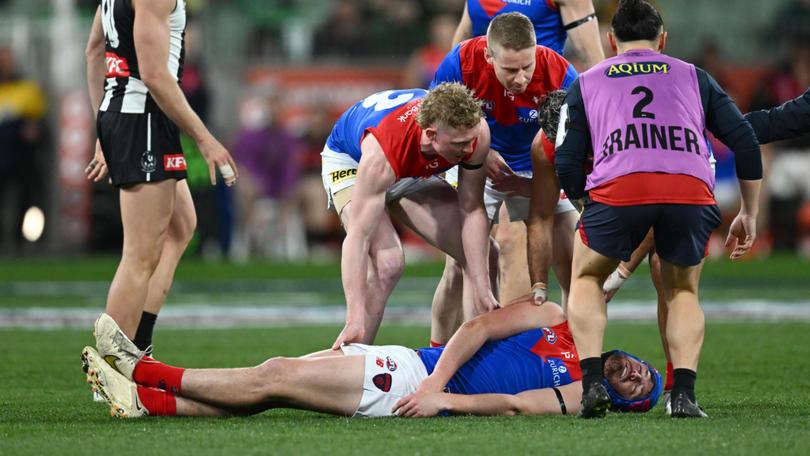
Whack.
Like two bulls colliding, Brayden Maynard’s shirtfront on Angus Brayshaw in last year’s qualifying final, not only stopped the superstar midfielder, but it rocked the MCG and the AFL.
What a moment. What drama.
Sign up to The Nightly's newsletters.
Get the first look at the digital newspaper, curated daily stories and breaking headlines delivered to your inbox.
By continuing you agree to our Terms and Privacy Policy.The footy world went crazy. Everyone seemed to have an opinion. From commentators to punters and everyone in between, accusations and judgements were being thrown around like haymakers in a pub brawl.
Sadly, because of that moment, Brayshaw, a tough, decorated, midfielder; a strong leader and highly-respected player and man, has made the decision to retire from the game he loves.
I say sadly, but for some, the emotions of Angus’ retirement will transcend sadness.
In March last year, I wrote about my personal experiences with head knocks. Having suffered many concussions through my cricket career, I am one of the lucky ones.
I was able to gain access to world-class doctors and specialists who treated me with care and wisdom. Often the weekend warriors and community sportspeople don’t have the same access.
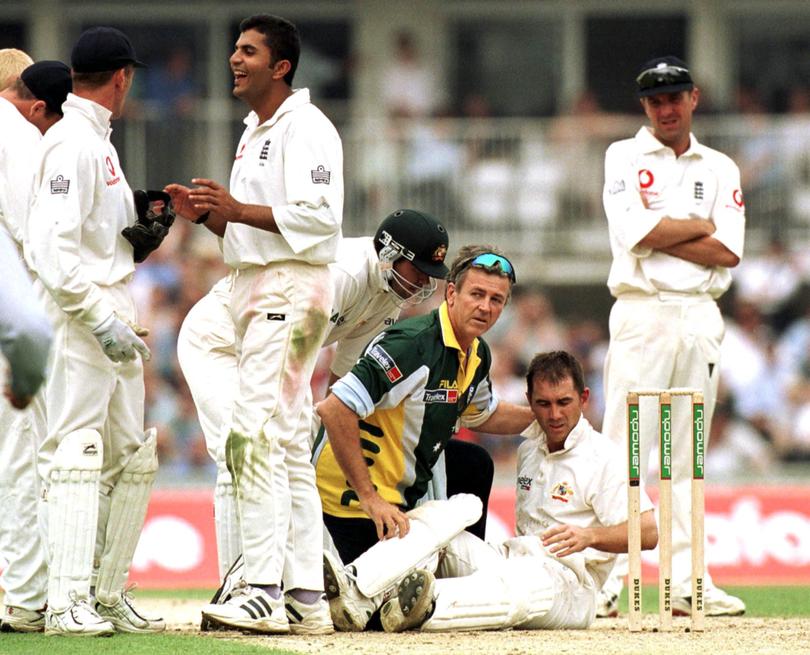
Granted, the professional gets more exposure and opportunity for injury through sheer volume of play, but concussion, and other serious injuries, don’t discriminate when it comes to the amateur or professional.
Thankfully, my concussions never turned into a significant brain injury as they have with Brayshaw and other players like him.
This is a distinction I have learned this week by talking to friends of mine, Dr Tom Hill and Dr Alex Kountouris.
Basically, concussion resolves over time, whilst other brain injuries are far more complex, dangerous and potentially life-changing. There is some research that suggests the cumulative effect of consistent head traumas may be the cause of such catastrophic outcomes, but this is still inconclusive.
Over the years I have had hours of conversations with people about concussion. Some have been fiery, others humbling. All have been insightful.
A couple of sobering ones happened this week and made me think of an angle rarely spoken about when concussion is discussed.
While stretchers and doctors ran to the aid of Brayshaw and his teammates puffed out their chests in support of their brother, there was a person in the stand whose heart had sunk and whose mind had started racing faster than any other person at the MCG.
That person was his mum, Debra Brayshaw.
Deb and Mark (Angus’s dad) have four sons. Three have played AFL and one represents our country in the armed forces. They are a close family. Pragmatic, strong, and with senses of humour that are infectious.
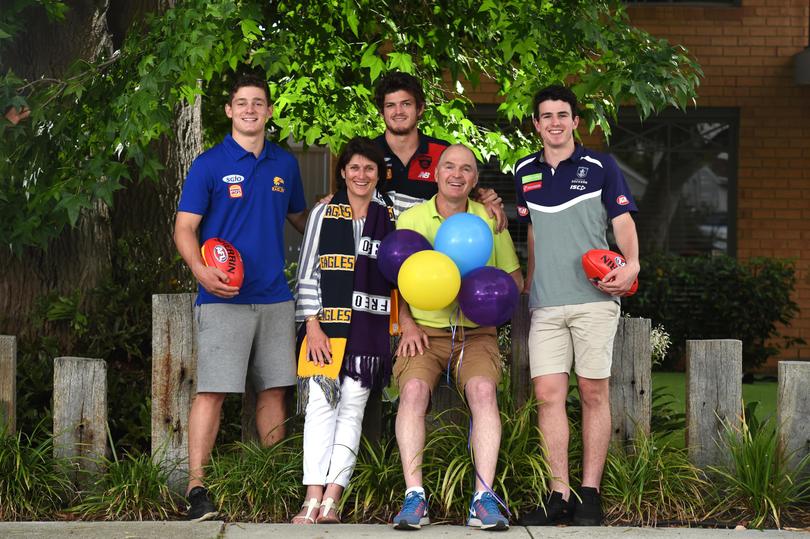
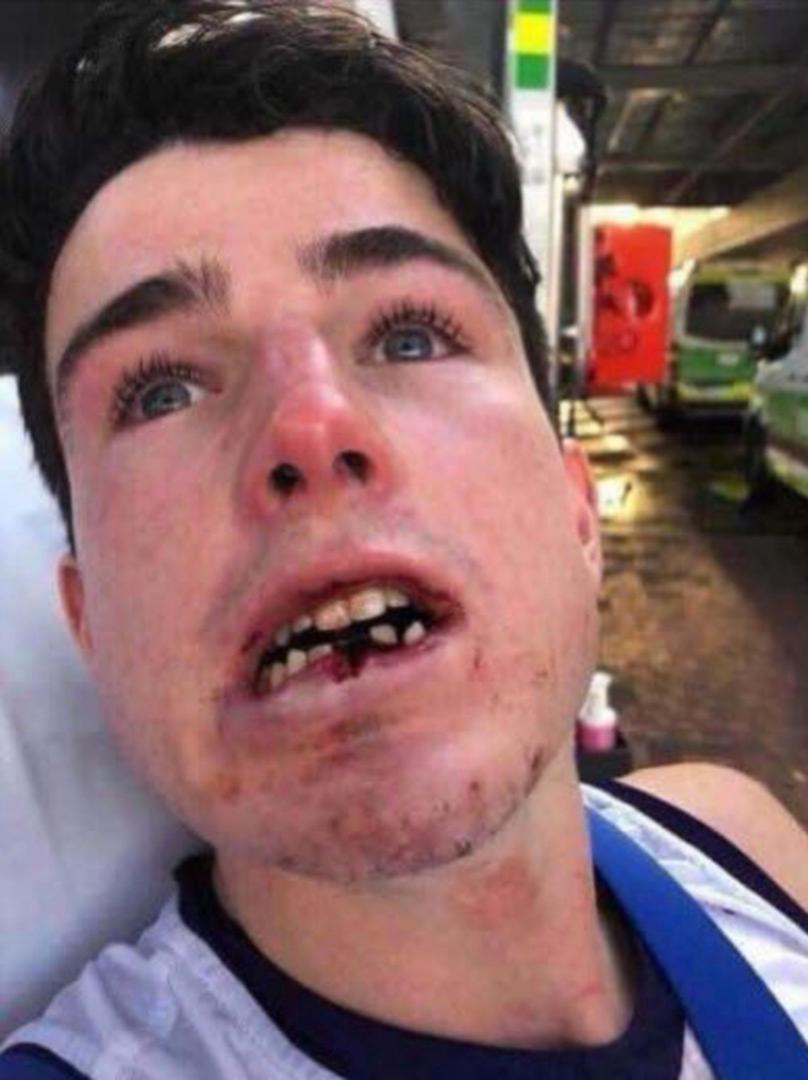
In 2018 when West Coast’s Andrew Gaff had a moment of madness and knocked out Angus’s brother, Andrew, it was Mark who stood out like a beacon of class and calm amidst the hysteria, anger, and emotions of the time.
He and Deb have seen it all. They have lived and breathed the challenges of bringing up their boys and the highs and lows that come with this. They are tough, but realistic and practical when it comes to dealing with the roller coaster.
That said, I can only imagine how Deb and the entire Brayshaw family felt when Angus told them he was retiring.
Maybe 50 per cent of the emotion would have been happy and relieved that he would be safe and healthy now that he wasn’t playing footy. Say, 25 to 30 per cent of feelings would have been disappointed Angus wouldn’t be adding to his illustrious career. And I’m sure there’d be some feelings of resentment and regret from head-clash moments from the past. That is natural.
I am told Angus wore a helmet for the last few years to help keep Deb’s mind a little more at ease. She must have had the maternal sense; an instinct that is rarely wrong.
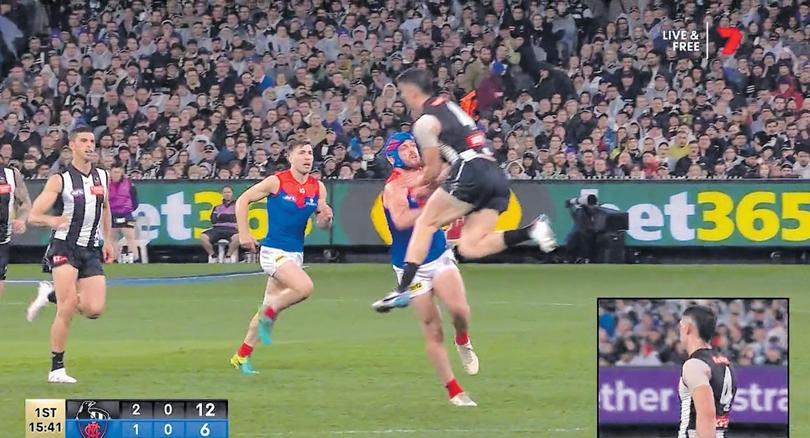
Angus’s fiancé Danielle Frawley must feel a similar sense of relief. Her father, Danny Crawley, an AFL legend, died tragically on September 9, 2019. He was posthumously diagnosed with CTE, a severe neurological disorder believed to be caused by repeated brain trauma and concussions.
Back when Australian world champion boxer Danny Green was fighting, I sat next to his mum Maria during a couple of his fights. While the packed arenas were bursting with adrenaline-infused anticipation, Maria would sit quietly and watch her son go about his business.
I once asked Danny if he got nervous fighting. His response was unforgettable. With a cheeky grin he said: “Nervous, no way mate, I love to fight, I can’t wait to get out there. I love fighting.”
When I asked his mum how she felt about Danny fighting, her response was the opposite. She told me that even though she was so proud of her son, she revealed that she hated seeing him in the ring. The downside of seeing her boy getting hurt was the tough part of the gig.
Herein lies one of the dilemmas.
On the one hand, athletes love the contest so much they are willing to risk almost anything.
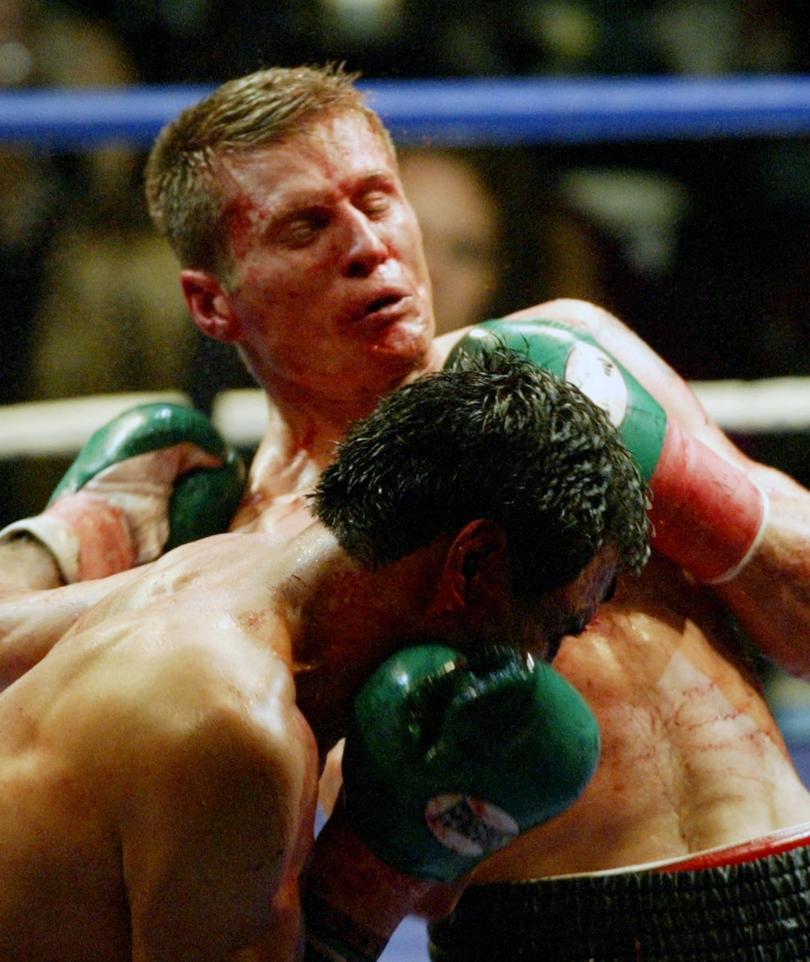
Professionally, it is not only the addictive adrenaline fix of the challenge, but the rewards can also be great, regardless of the risk. The pride and joy of the good times makes the buzz for the athletes and their loved-ones a treasure and a gift.
On the other hand, the pain associated with failure, injury and risk can be too much to endure.
The parents of cricketers like Will Pucovski must walk a tightrope every time their son takes to the field. Will’s battles with concussion and mental health issues have been well publicised and have, at times, derailed his extremely promising career.
Having watched Will’s journey very closely, it has broken my heart seeing what he has gone through. I can’t fathom how his family feels.
Their story has been very public, but it is not unlike every parent who watches their child play sport. We get nervous whether they will make a run, take a wicket, get a kick, score a goal, or make it to the finishing line. These are the normal performance anxieties players must deal with, let alone their family or friends.
Add another layer to this when your daughter or son has had injuries or concussions in the past. Watching them in the contest becomes all that more difficult.
Not only are your anxieties performance related, but health and well-being becomes a heightened worry. In the case of people like Will Pucowski or Angus Brayshaw, one more incident could trigger the end of the road.
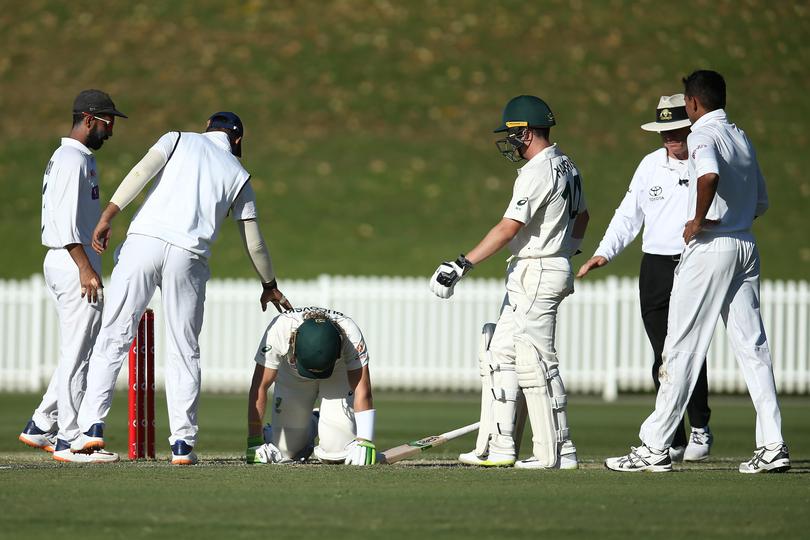
In my first Test as an opener in England I retired hurt. Blood trickling out of my ear, I remember lying on the physio bench waiting to be shipped off to hospital.
While waiting, our team manager rang my parents back in Perth. Mum was beside herself with worry.
Happy as she was for my comeback, her number one concern was my health. She had seen it before, and it never got easier. Watching from the other side of the world was tough as she often told me. It was no longer fun and a sense of pride, but rather a roller coaster of apprehension.
After another rough blow in my 100th Test — where concussion was the sorry outcome — my great friend and mentor Neil ‘Noddy’ Holder met me when I arrived back in Perth.
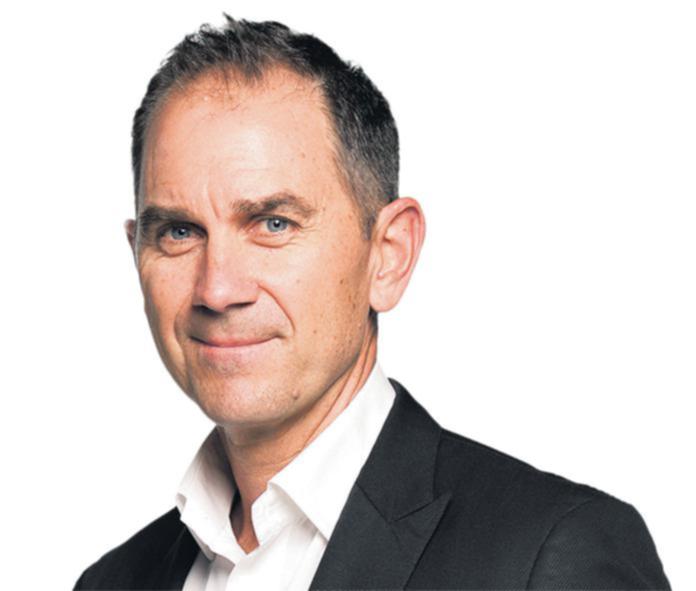
Sitting together he became very emotional as he told me it was time to retire. It was like the trainer throwing the white towel into the ring. “We can’t keep seeing you get hurt like this”, was his sentiment.
His reaction back then was reinforced through my conversations this week.
A doctor friend told me how he had to encourage a 13-year-old boy to stop playing football after being concussed four times and suffering two seizures as a result. In the corner his mum was crying and almost pleading for my mate’s support.
The youngster was begging him for a different outcome because he loved the game so much. As the doc told me: “These are heartbreaking experiences.”
Angus Brayshaw’s premature retirement will not stop similar 13-year-old-boys and girls signing up for a crack at the big time. Nor should it. But it will remind people that their health is a far greater priority than the bright lights of a moment in time on the sports field.
In March last year I wrote: “Through all these experiences with concussion, what is the answer? For one, it is not crystal clear. Parents are considering withdrawing their kids from sport, because of the potential risks of concussion or injury. Despite this, I would still encourage our children to take part in sport no matter what. The benefits of community, health, friendship and life education are invaluable.”
Twelve months on, my view remains the same.
